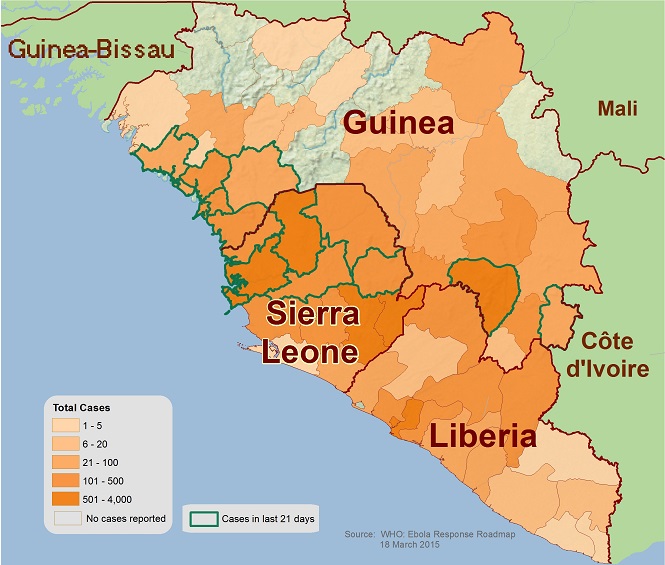The recent Ebola epidemic in West Africa highlighted the need for better global preparedness and response to disease outbreaks. To help address that need in Guinea, Liberia and Sierra Leone — the countries most affected by the epidemic — the National Institutes of Health has established a new program to strengthen the research capacity to study Ebola, Lassa fever, yellow fever and other emerging viral diseases.

In the initiative’s first funding round, NIH’s Fogarty International Center is awarding grants to four U.S. institutions that will partner with West African academic centers to design training programs for their scientists and health researchers.
The collaborations aim to develop research training proposals that would strengthen the skills required to evaluate vaccines, develop new diagnostic tests and treatments, and identify the most effective intervention strategies for disease outbreaks. These planning grants, totaling $200,000, are intended to help institutions prepare to compete for larger, longer-term Fogarty grants to implement research training programs.
“We hope these awards will catalyze efforts to identify existing resources and plan to address development of sustainable research capacity in the countries that suffered so horribly from Ebola,” said Fogarty Director Roger I. Glass, M.D., Ph.D. “By training local researchers in epidemiology and lab skills, and helping them form networks with U.S. scientists, we believe future disease outbreaks can be better contained.”


One thought on “Ebola: West African countries receive NIH support to strengthen research capacity”